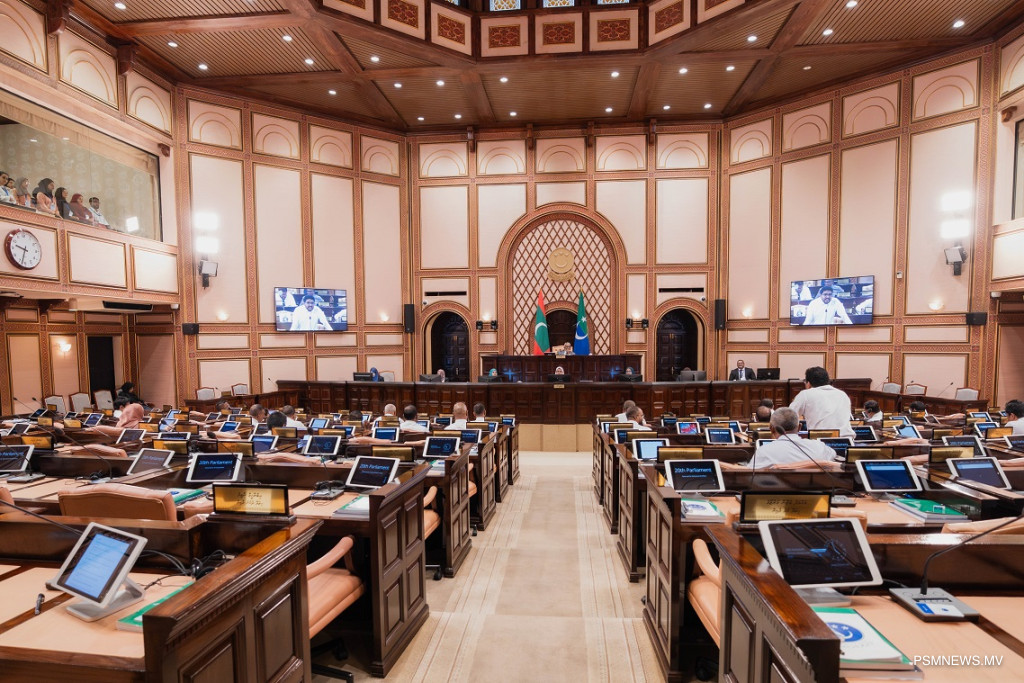
The Parliament has opened formal debate on the government’s proposed budget for the upcoming fiscal year, a USD 4.2 billion submission that has drawn both firm endorsements and pointed criticism from members of parliament.
In accordance with procedural rules governing the initial phase of budgetary deliberations, each member is allotted 15 minutes to address the chamber. The session commenced with four members granted the floor by the Speaker.
Among the first to speak was Adam Shafeeq, member for Makunudhoo, who described the budget as ambitious and essential to the nation’s financial stability. He asserted that the proposal had been formulated to fulfil the electoral pledges of President Dr Mohamed Muizzu.
Shafeeq expressed confidence in the budget’s capacity to stimulate commercial activity and revitalise small and medium enterprises (SMEs), which he noted had remained stagnant until 2024. He affirmed his full endorsement, citing provisions aimed at sustaining economic momentum, settling foreign debt obligations, and instituting favourable revisions to employee remuneration and benefits.
“Because this budget assures me that the pace of economic growth will be sustained, a substantial amount of foreign debt will be settled, and favourable changes will be implemented regarding employee salaries and benefits, I hereby grant my complete endorsement of this proposal,” Shafeeq said.
Dr Anara Naeem, member for Huraa, also characterised the budget as optimistic. She argued that it had been compiled with a view to insulating the nation from a potential financial crisis, and pointed to substantial allocations across key sectors as evidence of the government’s commitment to delivering comprehensive public services.
She further noted that the budget conservatively estimates revenue from grants and foreign aid. This approach, she suggested, reflects a broader national objective of reducing external influence in the formulation of state policy and promoting fiscal self-reliance. “Should the fiscal policy be strengthened and tax buoyancy subsequently reduced, this budget has the potential to become the most beneficial budget for the nation in its recent history,” she said.
Several members expressed confidence that, if implemented in full, the budget could enable the government to meet its fiscal targets for 2028. They concluded that the proposal is structured to address core concerns related to household income, living standards, policy coherence, and the provision of essential services.
Not all lawmakers were persuaded. Abdul Gafoor Moosa, member for Hanimaadhoo, raised objections concerning the structure of the budget document, specifically the omission of individual project listings.
He contended that such omissions constitute a breach of legal requirements, a concern that had also surfaced during last year’s budget debate. At that time, members ultimately deemed the submission valid, citing the inclusion of sectoral allocations in aggregate form, and the budget was subsequently passed.
The debate is scheduled to continue, with the next session convening on Sunday. The specialised committee tasked with reviewing the proposal has already commenced its work. Under parliamentary rules, the committee must conclude its analysis by 19 November.
